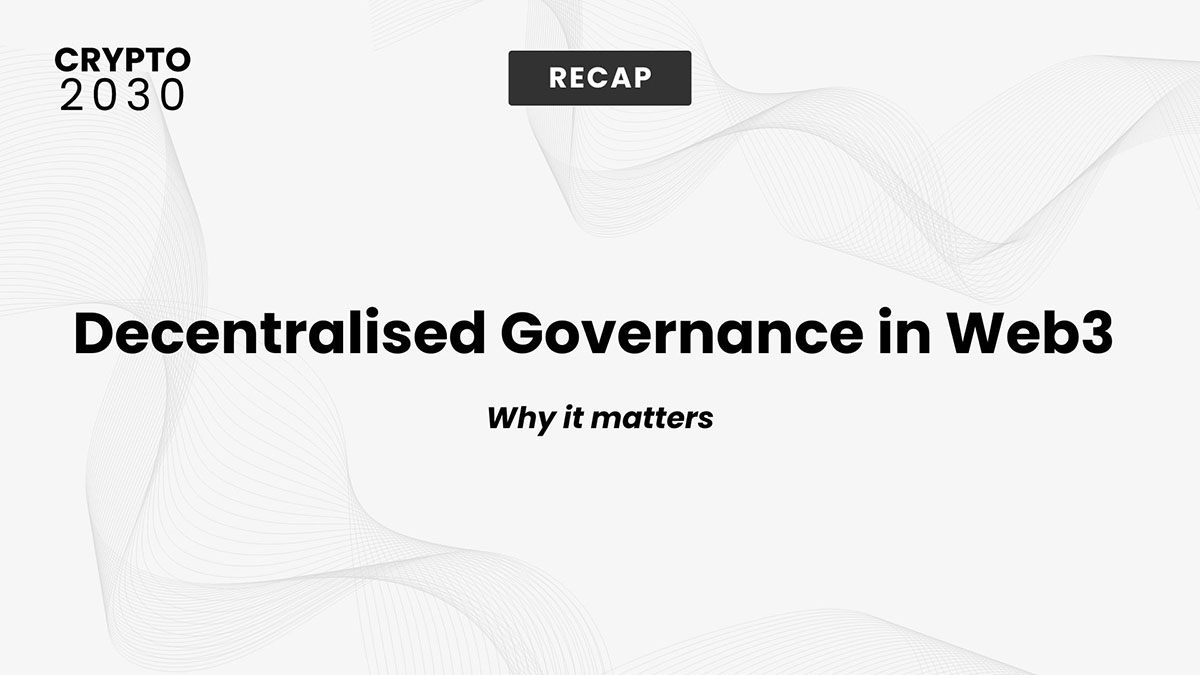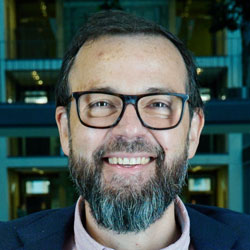Decentralised governance is a concept that is frequently mentioned in the crypto space – but what is it and why does it matter? Read more to find out. Experts at the panel "Web3 Governance" at CRYPTO2030 delved into the details about decentralised governance and current challenges and solutions.
In the Web3 world, decentralised governance is more than just a buzzword. It is the backbone of an equal and democratic ecosystem, allowing all community members to have a say in decisions. This structure is crucial to Web3 ecosystems that adopt a DAO (decentralised autonomous organisation) structure, pushing inclusiveness and fairness while avoiding the power imbalances that plagued Web 2.
What is Decentralised Governance?
Decentralised governance represents a shift from traditional, hierarchical decision-making structures to a more inclusive and democratic model. This approach allows every participant in a network to have the potential to influence its direction and policies.
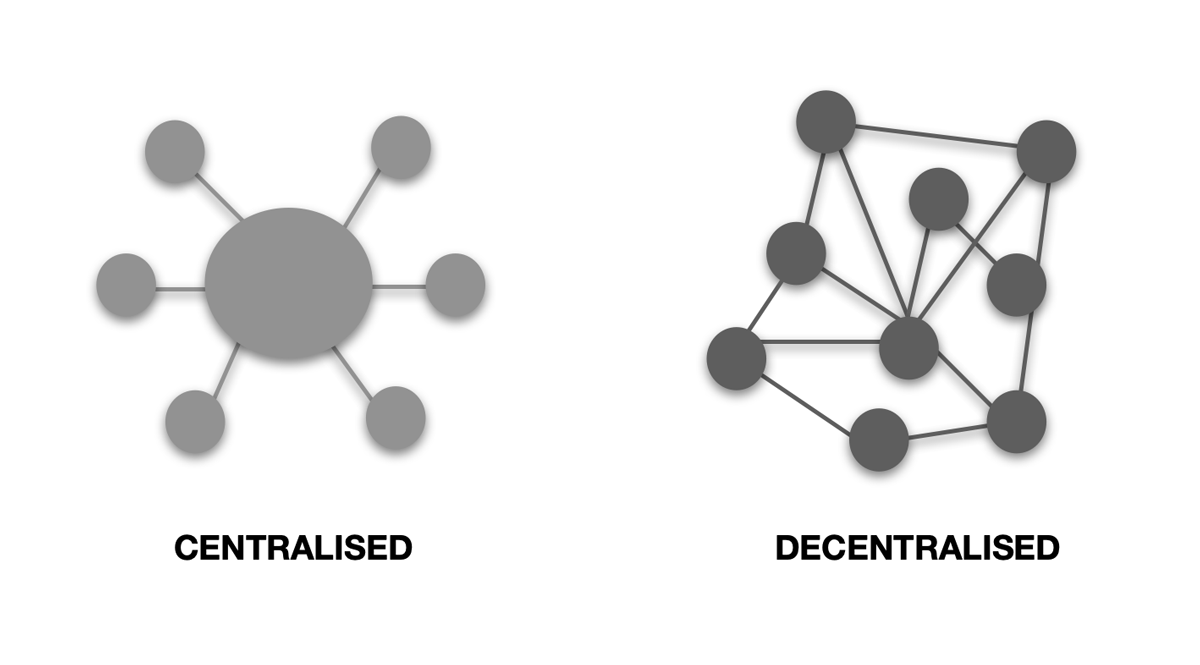
The benefit of this structure is that decisions no longer lie within the hands of a few powerful stakeholders. This shift in power gives regular users and participants the chance to share their points of view.
Another key benefit of decentralised governance is enhancing the resilience of networks. Decentralised systems spread decision-making power among many people, reducing the risk of a single point of failure. These failures are a major problem for projects that adopt centralised governance, which is common in the Web2 world. Single points of failure can be human or nonhuman.
Meta is facing a human single point of failure in leadership as Mark Zuckerberg serves as founder, chairman, and CEO. If there is only one person making important decisions and providing guidance for a company, the odds of a serious misjudgement or mistake increase. Decentralised decision making offers businesses multiple perspectives and a lower likelihood of potentially damaging issues such as confirmation bias and groupthink.
An example of a non-human single point of failure would be an IT system that depends entirely on a specific router – and if that router malfunctions, the entire system would collapse.
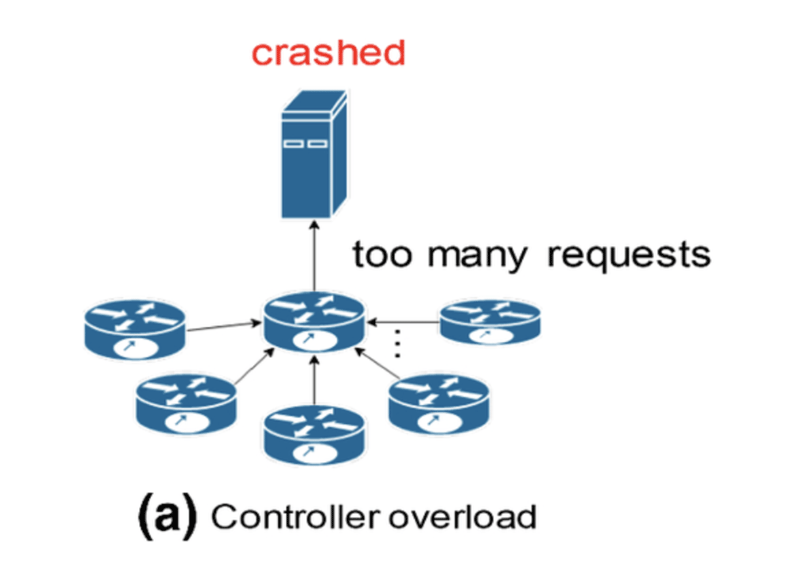
Challenges and solutions of Decentralised Governance
While the benefits of decentralised governance are compelling, implementation reveals some challenges.
Wealth Gap
A pressing challenge within communities that adopt decentralised governance is ensuring equitable participation across all network participants. In project communities, users with more funds or contributions might have a bigger say in decisions, creating a wealth gap. However, other users who don't hold as many funds also need a chance to be heard.
To solve the issue of wealth gaps in decentralised decision-making, our panellists advocated for voting systems that prioritise the value and merit behind a user's contributions. They also highlighted emerging technologies, such as soulbound tokens, as promising tools for refining these voting systems. Soulbound tokens are non-transferable, immutable records that can only be owned and transferred by a specific wallet address. Once they are created and assigned, ownership cannot change.
Soulbound tokens would help to make decision making involvement-based rather than solely based on token ownership, offering community members to hold a concrete record of their participation in the community. Soulbound tokens empower members who are deeply involved in the community to vote on key proposals, honouring their commitment to the community and not just the amount of funds they hold.
Anonymity
Another challenge of maintaining decentralised governance is developing regulatory systems that allow for balancing anonymous participation while ensuring actions and decisions are accountable and transparent. This prevents abuse and ensures integrity within the governance process. For a community to function effectively, there must be clarity and transparency about how decisions are made. Therefore, access to data and an active governance mechanism needs to be implemented to monitor and prevent collusion among members.
The challenge lies in fostering a community that communicates openly while respecting the desire for anonymity. Anonymity is essential for protecting individual privacy and encouraging uninhibited participation, but it can also hinder the community's ability to understand who is contributing to the decision-making process.
The solution is to find a critical middle-ground. The use of decentralised, 3rd party identifiers that perform "Know Your Customer" checks offers a promising solution. KYC providers verify the credentials of individuals without sharing their information within the community. KYC provision would function similarly to an escrow, where individual information is held secure from the rest of the community and only visible to the KYC provider.
Once KYC checks are completed, individuals would be able to participate in decentralised governance without revealing personal information beyond what they are comfortable with sharing.
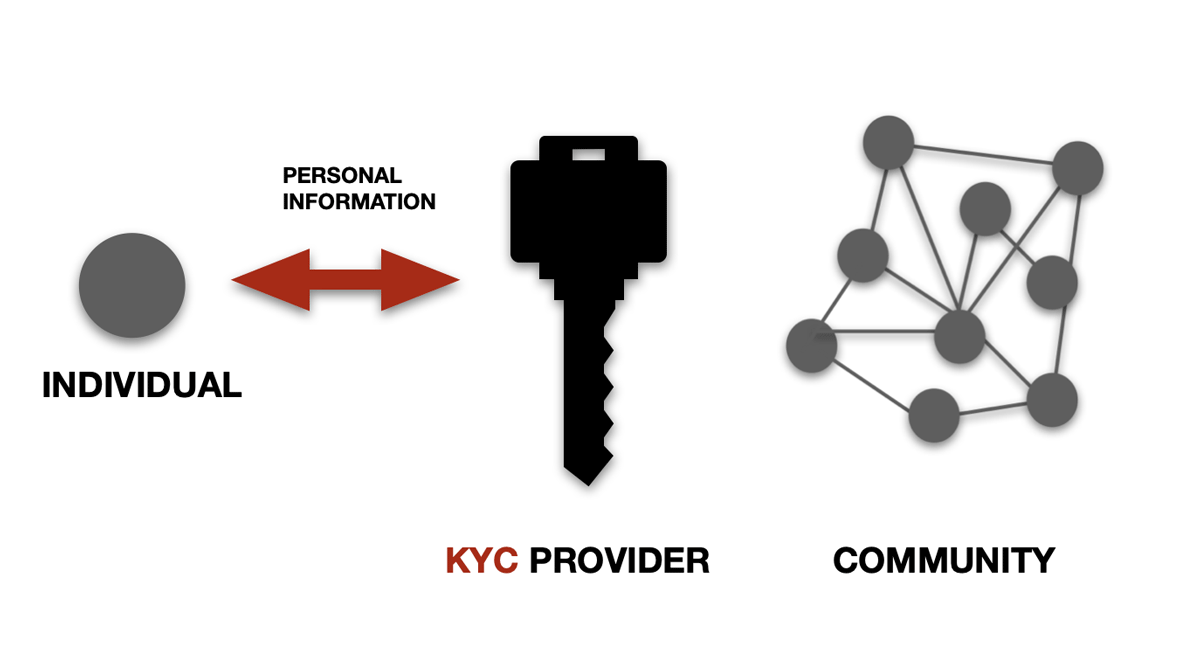
Legal framework
Communities and projects with decentralised governance still need to work with a specified legal framework. This is because foundational elements such as blockchain technology, partner and employment contracts, and intellectual property rights require formal legal agreements such as non-disclosure agreements. These elements must be anchored within an appropriate legal framework.
Engaging with regulators and policy makers to develop supportive legal frameworks for decentralised governance is an essential solution. This relationship would allow communities to satisfy existing legal and regulatory landscapes in their respective countries, ensuring they can operate effectively without compromising their decentralised principles.
Panellist Alina Tustanovska shared her thoughts on striking a balance between legal frameworks and decentralisation, and how there are still necessary innovations needed before a system can be created. Currently, decentralised providers; KYC providers; and Intellectual Property and NDA agreements exist as different functions. A solution to bring all of those functions together is necessary to elevate the security and accountability of decentralised governance. Her team and community at AirDAO is working on technology to solve this problem, and we’re looking forward to seeing their innovations!
What does the future of decentralised governance look like in Web3?
The CRYPTO2030 panel on Web3 governance offered invaluable insights into the evolving world of decentralised networks. Our panellists emphasised the importance of maintaining anonymity while fostering a strong community, and staying dedicated to including everyone by valuing democracy. Their goal is for ecosystems to collectively govern as a community for an effective and inclusive future in decentralised governance.
Meet the experts behind our "Web3 Governance" panel
At CRYPTO2030, the brightest and most innovative minds in Web3 came together to exchange ideas and propel the advancement of the Web3 space.
Follow our panellists to stay up-to-date on what they are working on:
Panelists

Sandro Knöpfel
Head of Financial & Regulated Institutions
Cardano Foundation

